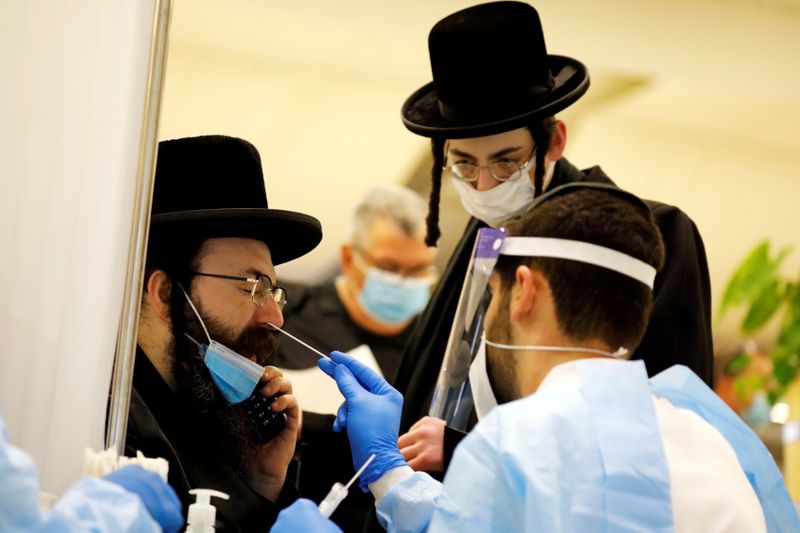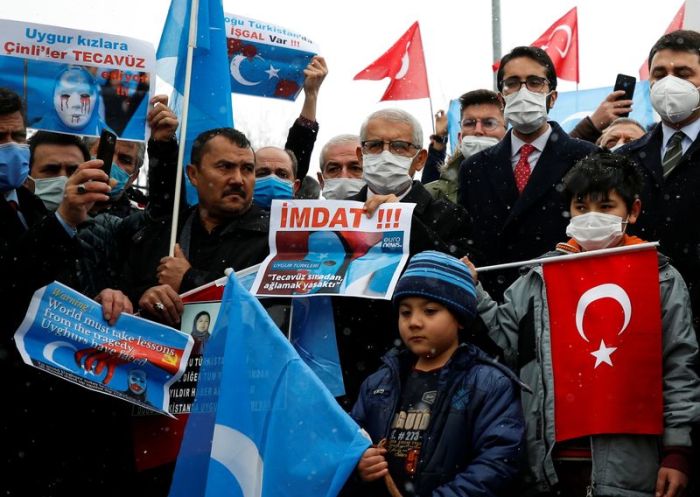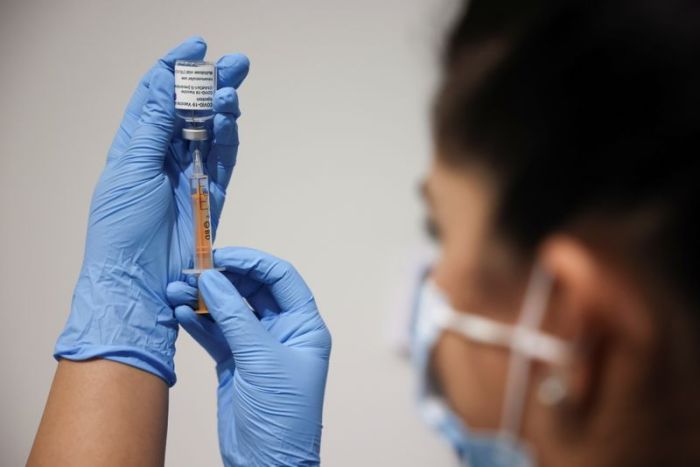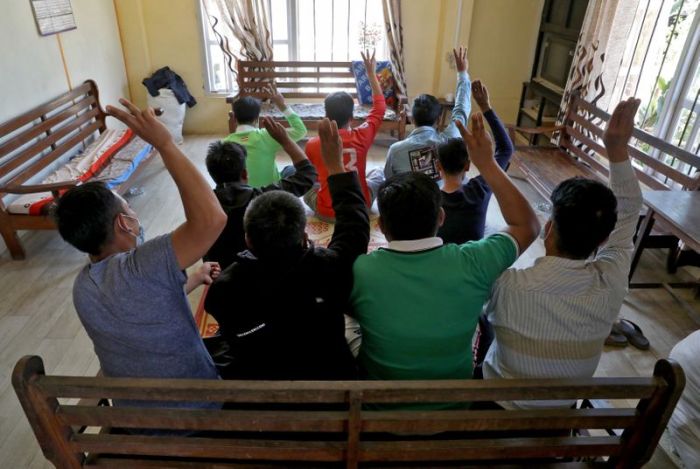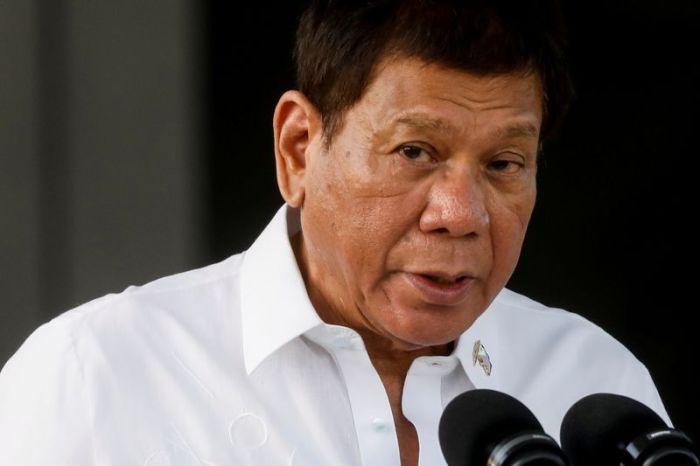JERUSALEM (Reuters) – Israel has administered two doses of COVID-19 vaccine to more than half its population, the health minister said on Thursday, a world-beating rollout that has helped the country emerge from pandemic closures.
Distribution of the Pfizer/BioNTech vaccine in Israel began in December, with eligibility extended to citizens and residents over the age of 16 – some 69% of the 9.3 million population. People are deemed fully protected a week after receiving the second shot.
In a statement announcing the milestone amid a sustained drop in new infections, Health Minister Yuli Edelstein called on citizens “to follow (health) guidelines so that the coronavirus does not return”.
He said 50.07% of the overall population – or 72.5% of the eligible population – had received both vaccine doses, while 55.96% of the overall population have received the first dose.
Israel began easing a nationwide lockdown in late February. Most businesses and schools, as well as airports, have gradually resumed activity – with caps on capacity. The fully vaccinated, and the around 8.7% of Israelis who have recovered from COVID-19 with presumed immunity, are issued with Health Ministry “Green Pass” certificates that confer access to various leisure venues.
Israel has seen an 85% drop in daily COVID-19 deaths, a 72% decrease in the critically ill and 86% fewer daily cases since the pandemic’s third peak in mid-January, according to data scientist Eran Segal of Israel’s Weizmann Institute of Science.
LIMITED APPEAL
Health Ministry director-general Hezi Levi told Reuters he believed that all eligible Israelis could be fully vaccinated by the end of May. But some officials privately estimate that 10% of the eligible population do not intend to get vaccinated.
Israel counts East Jerusalem Palestinians as part of its population and has been providing them with vaccines. It has also offered vaccines to Palestinians who work in Israel and settlements in the occupied West Bank.
Palestinians health officials have launched a limited vaccination programme in the West Bank and Gaza Strip using doses provided by Israel, Russia, the United Arab Emirates and the global COVAX vaccine-sharing initiative.
Israel has come under international criticism for not doing more to enable Palestinian vaccinations. It says Palestinians are responsible for health measures in self-ruled areas.
A group of six Israeli and Palestinian human rights groups said they had appealed to Israel’s Supreme Court to demand the state provide vaccines to the entire Palestinian population.
“The COVID-19 morbidity and mortality rates in the West Bank and Gaza are increasing dramatically but the vaccine supply to Palestinians so far covers less than 1.5% of the population,” one of the petitioners, Physicians for Human Rights Israel, said in a statement.
A poll by the Palestinian Center for Policy and Survey Research, released on Tuesday, found that 55% of Palestinians are willing to take the vaccine when it becomes available or have already received it, while 43% are unwilling to take it.
(Additional reporting by Rami Ayyub; Writing by Dan Williams; Editing by Gerry Doyle, Giles Elgood and Nick Macfie)

